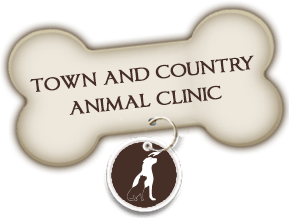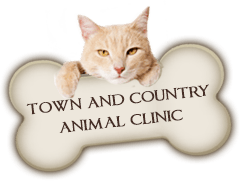Aging is not the inevitable beginning of sickness and suffering. Older pets can enjoy many years of active life when owners are aware of their changing health needs. Throughout this blog we will explain how aging can affect your pet and what signs you should observe and discuss with your veterinarian.
Coat and Skin
Decreased elasticity leads to thickened dry skin. The haircoat may become dry and brittle. Sebaceous glands can become hyperactive leading to excessive waxy secretions with a very pungent smell. Watch for any changes in your pet’s coat. If it appears dull, scaly or dry or if it appears oily it is worth mentioning to your veterinary care team as they may be able to recommend a shampoo designed to treat the symptoms you are noticing. Even though they are older, they are still susceptible to allergies and parasites and may require medications to treat those concerns. As part of the aging process, you may notice more lumps or warts on your pet. It is important to have them examined by a veterinarian to determine if they are tumors or warts (papillomas) and decide on an appropriate treatment plan.
Mouth, Teeth and Gums
Statics show that over 80 percent of dogs and cats over the age of 3 years old suffer from periodontal disease. As your pet ages, the plaque continues to build up your pet’s teeth. Dental calculus, bad breath, periodontal disease and or loss of teeth can lead to problems with your aging pet. You may notice a decrease in your pet’s appetite, vomiting or diarrhea. Internally, the bacteria from your dog or cat’s mouth can travel through the blood stream and cause infections of the nervous system, lungs, heart, kidneys and liver. This poses a serious risk to your senior pet as those organs are also undergoing changes caused by aging. At this point a professional dental cleaning is recommended to correct the disease process occurring in your pet’s mouth. In order to maintain the animal’s dental health a professional dental cleaning may be required every 1 to 2 years.
Skeleton
Bones become thinner and brittle and more subject to fracture. For this reason it is important to assist your pet up and down stairs, in and out of the car during their senior years. If your pet is showing lameness, an examination from your veterinarian and radiographs may determine if it is disc disease or arthritis causing your pet’s pain. Once we know the condition causing your pet pain we can create a management plan to help your pet enjoy their senior years comfortably.
Senses
As your pet ages, their sense of smell, hearing and vision will change or deteriorate. As their vision changes it is important to keep the furniture in your house in one location. This will reduce the confusion your pet is experiencing as their vision is not as keen as it once was. As their hearing changes, it may become necessary to clap or stomp your foot to gain the attention of your pet. It is important to physically look into your dog’s ear to ensure the decrease in hearing is not due to an infection of the ear, or other conditions of the ear that may require medication.
Digestive System
You may notice your senior pet is more flatulence and seems to have abnormal stools more often. This is due to a decrease in your pets nutritional absorption or a decreased in how their liver is functioning. A blood test can be performed to determine how your animal’s liver is functioning. It may be recommended to change your pets food to a diet that is more easily digested and designed for senior pets.
Cardiovascular
Inefficient pumping of the heart muscles due to aging leads to decreased cardiac output. This can lead to congestive heart failure. The first sign may be merely a mild cough. Chronic bronchitis is also common in senior pets. Emphysema and pulmonary edema may occur as the lung tissue loses its elasticity. An electrocardiograph or radiograph may be recommended to monitor how your pet’s cardiovascular system is aging.
Urogenital System
If you notice excessive thirst and urination in your pet it may be a symptom of reduced kidney function. Incontinence may also be occurring with our aging pets. Annual urine analysis will help us determine if your pet is requires medication to assist in their aging process.
Hormone System
Much like humans, as animals age the hormone levels in the body change. If you notice your pet becoming lethargic, stress, with a thinning haircoat, it may be caused by insufficient thyroid function. A blood test may help identify if your pet has a decrease in hormone levels.
Obesity
Having an overweight dog is difficult at any age, but it becomes particular hazard in a senior pet. The excess weight puts unnecessary stress on an already weakened body. Having an overweight senior pet affects their heart and kidneys, and is more difficult on their bones and joints.
In Summary
Here is a list of changes that may occur in your aging pet that would warrant immediate action.
- Sudden weight loss
- Loss of appetite
- Diarrhea or vomiting which lasts more than a day
- Increase in appetite without a weight increase
- Increased thirst and or increased urination
- Tiredness and fatigue without exercise
- Difficulty getting up from a laying position
- Coughing and excessive panting
- Abnormal behaviour (roaming, circling, barking at nothing, urinary accidents)
Regular wellness visits play a critical role in your pet’s life and longevity. In addition to exams, vaccinations and lab tests, these visits also provide us with the opportunity to get to know you and to bond with your pet. We encourage you to use this time to ask any questions or discuss any concerns you may have, so that we can work together to ensure a long, happy and healthy life for your animal companion.






